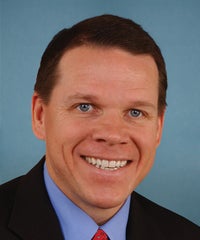Time to face reality – Green New Deal is a nightmare
Published 6:28 pm Saturday, October 12, 2019
Originally published in The Washington Times
Have you ever read a news story and asked yourself, “Is this for real”? I had that experience when I recently read that a major proponent of the Green New Deal said she woke up in the middle of the night with anxiety about climate change. She believes taxpayers need to just “bite the bullet” and go along with the plan.
The Green New Deal, I remind you, theorizes that we could save the planet if we, in part, replaced or upgraded every building in the United States and got rid of airplanes and gas-powered vehicles.
One study suggests that this “Deal” would cost $93 trillion over the next 10 years. At that price, this certainly isn’t a deal, it’s a disaster.
This would cost the average American household $600,000, not to mention the millions of jobs that would be lost. While the Deal’s proponents tout the new jobs this plan would create, in reality, the creation of green jobs in recent years has been shown to be underwhelming when compared to the rosy promises used to sell such plans. Even California stopped trying to tally the number of green jobs created.
The thing that keeps me up at night is imagining this Green New Deal nightmare becoming reality. This proposal is like the maniac in a bad horror movie who, beyond any logic, just keeps coming back.
As a sixth-generation farmer, I firmly believe we should be mindful of our impact on the environment because the land is how we make our living. I am not arguing against improved energy efficiency and cleaner-burning fuels, but proposals to protect the environment need to be grounded in reality and mindful of the costs on hardworking Americans.
The Green New Deal is unquestionably one of the most onerous, unrealistic proposals I have ever seen. How many Americans can afford to “bite the bullet” if it’s going to cost them $600,000?
I have deep concerns that the Green New Deal would unnecessarily hijack and politicize any constructive conversations Congress and the country can have about important issues, like infrastructure or cleaner energy production, where there is plenty of room for realistic action. Our approach to infrastructure and other issues require long-term, workable solutions — an impossibility with heavy-handed proposals like the Green New Deal that rely on big government mandates.
It is beyond me why politicians on the far-left feel like they need to dictate, tax and penalize in order to force their socialist agenda when, in fact, we already see the private sector responding to consumer-driven market demands for cleaner energy and cleaner technology. We continue to witness cars, trucks, trains and aircraft engines becoming cleaner, more fuel-efficient and more dependent on alternative fuels. More and more Americans want these things, and that popular demand provides a powerful, built-in, market-based incentive for manufacturers and companies to offer them.
This may be news to the mainstream media, but an approach that recognizes reality can actually work. In recent years, under Republican Congresses, we passed bipartisan infrastructure legislation that addresses environmental issues. In 2018, for example, the FAA Reauthorization Act established an FAA-industry partnership for developing low-energy and low-emission technologies, and the Disaster Recovery Reform Act focused on making our communities more resilient to natural disasters. Since 2014, three Water Resources Development Acts have addressed ecosystem restoration, flood risk reduction, and storm risk mitigation projects. Bipartisan proposals in Congress now would provide for government-industry partnerships and encourage innovation.
When it comes to infrastructure, the environment, and other issues, Congress must continue to offer bipartisan, consensus-based solutions that ensure that states, local governments, and private industries have the tools and flexibility to address their specific needs and, above all, keep innovating.
Sweeping and prohibitively costly government mandates that ignore the unique needs of our communities, the lives of hardworking Americans, and how the economy works — proposals like the Green New Deal — have no place in the national discussion about how we are going to move forward.
Anyone who thinks otherwise needs to wake up and face reality.
Rep. Sam Graves, Missouri Republican, is Ranking Member of the House Committee on Transportation and Infrastructure.






